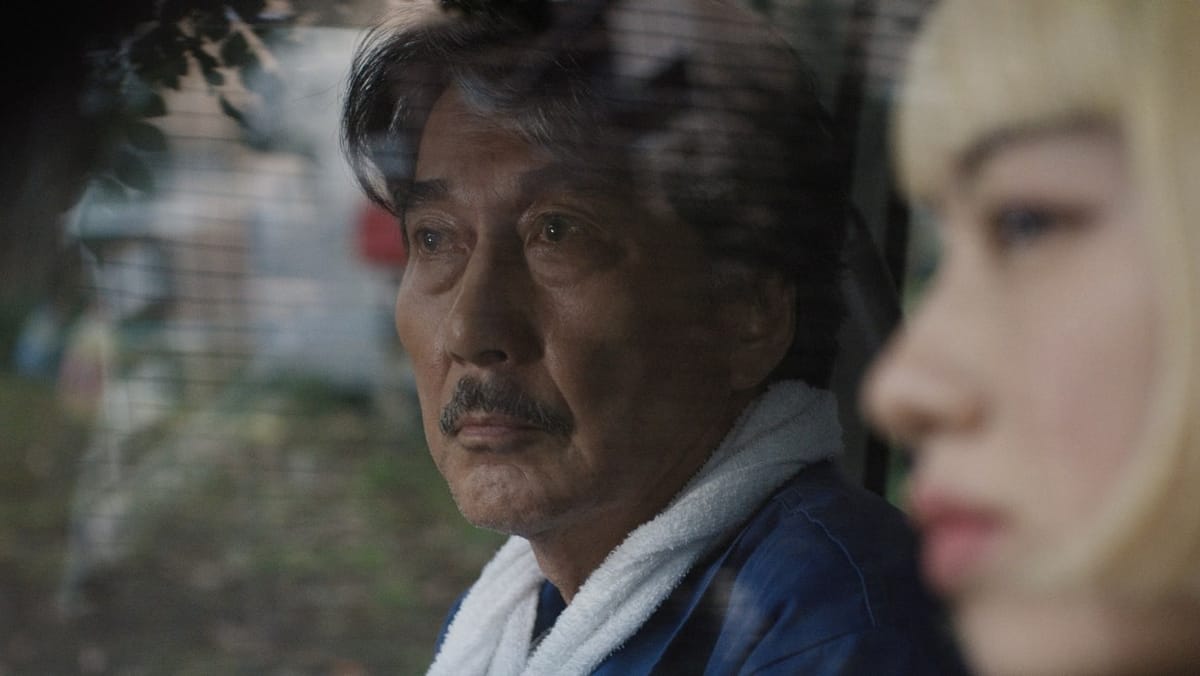Perfect Days in the Age of Polycrisis
In Wim Wenders' film, suffering is transcended, rather than escaped.

Wim Wenders' most recent film Perfect Days, co-written with Takuma Takashi, depicts the life of a Tokyo toilet cleaner named Hirayami. The audience quickly gets to know Hirayama's many daily habits, including trimming his neat moustache, listening to 60s or 70s music on cassette, working hard, and bathing at a sentō. Each day, small or large variations to his routine are caused by unexpected events, some funny, some heartbreaking, some disturbing, some sweet. Throughout even the difficult episodes — and despite suggestions of a deeper tragedy in his past, the details of which go unrevealed — Hirayama seems to experience the world with joy and reverence. He's developed a natural asceticism that is at odds with the fast-paced, high-tech, consumeristic world around him. The film leaves a gently psychedelic impression through the way it slows down time, lingers repeatedly on the interplay of light and shadow, and focuses attention on small, ordinary moments.
In a review in Jacobin, Eileen Jones says the film indulges in "a prevalent fantasy of our times, that we could somehow escape through ascetic choices the worst effects of our lives under capitalism". Jones says the film makes no systemic critique, but I'm not so sure. In a key sequence towards the film's end, we do see the burden of capitalism bearing down on the working-class Hirayama. After he's forced to take on an arduous double shift by an employer who ignores his phone calls, Hirayama is angry and worn out. He can't seem to shake his exhaustion during the days that follow. In this instance, Hirayama is not rewarded for his dedication to his work (which is an important public service), but exploited. He does not escape the suffering of ordinary life or of being a worker under capitalism, but in some ways and moments, he is able to transcend it.
The film reminds me of a saying by Tang dynasty Chinese Buddhist Yunmen, sometimes meditated on as a koan by students in the Zen tradition: 'Every day is a good day.' Can that be true — given the many crises of history and our current moment of polycrisis? Can all of Hirayama's days really be described as perfect?
In the film's final scene, we see a close-up of Hirayama in his van as he plays Nina Simone's version of 'Feeling Good'. It's a song of joy and connection, celebrating a liberation that is in the process of being formed. It's sung here by the same artist who wrote and performed 'Mississippi Goddam', who experienced vicious racism, and who partook in the struggle for civil rights — who was, evidently, no stranger to suffering. It's a song about a joy found in life, rather than a pleasure sought through escaping life. As Hirayama listens, he seems happy at first, smiling widely. As the shot lingers, other expressions begin to flicker across his face. Tears well up, and some kind of pain appears to surface, even as he continues to smile. It's wonderful acting by Kōji Yakusho, who portrays one of those rare and powerful moments when the right song, even a familiar one, heard at just the right moment can completely overpower the listener and open them up to vast depths of emotion. Hirayama, like the singer he's listening to, is experiencing a new dawn, a new life, even within the predictability of his daily routine.
In a seminar discussion with the American Film Institute, Wenders frames Perfect Days as a post-pandemic film. He says that during the height of Covid, he, like many others, thought life would be different afterwards:
We will have learned as societies. [I thought] we somehow miraculously will learn and we'll decide to live differently and also ... handle abundance differently. Little did I know, it was more reckless afterwards than before. So I realised there was a chance to say something about that and to make a movie about somebody who didn't want to own more and who didn't believe in growth, and he would buy one book in order to read that book and finish it before he bought another book, and he's not going and buying five.
If that's a message for the aftermath of the pandemic, it's surely also a message for the age of climate crisis. Of course, buying one book at a time rather than five isn't going to do much to slow climate breakdown, but the point here is not about individual actions as 'solutions'. Rather, it's about transforming common values and how we conceive the good life. In this context, perfect days are those where we have what we need and are content with it.
There is a link between individual consumption and the destructive economic growth that capitalism relies upon. A groundswell shift in values can force political change. Both personally and collectively, we have a role in our own liberation. It remains to be seen whether societies will ever learn the lessons Wenders hoped the pandemic would teach. I like to think quiet storytelling like Perfect Days might help, in its quiet way.